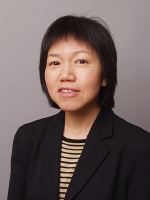Serendip is an independent site partnering with faculty at multiple colleges and universities around the world. Happy exploring!
Notes Towards Day 14: A Conversation with Wai Chee Dimock

teal's class summary
rachelr's class notes

I. Coursekeeping
welcome back from break: any relevant stories?
teal and rachelr our notetakers for today
for Thursday, we'll begin our discussion of the
Parody of Genres: Making Fun of the Forms
(and so Clarifying What/How They Do What They Do?)
to get started: read all of Lewis Carroll's
1865 Alice's Adventures in Wonderland
AND Melanie Bayley's March 6 New York
Times article, "Algebra in Wonderland.
the week after we'll look @ Carroll's sequel,
Through the Looking Glass, and several
recent films inspired by both these texts
II. today we welcome Wai Chee Dimock,
professor of English and American Studies @ Yale;
@ 7:30 tonight in the Ely Room @ Wyndham
she'll be talking about Literature as Public Humanities,
with a focus on the Facebook group, "Rethinking World Literature,"
and the PBS series called "Reading the World,"
for which she has been acting as a consultant.
This morning she joins us for a (related!) conversation,
stepping off from the first essay we read in this class:
"Genres as Fields of Knowledge," the introductory piece
she wrote for the PMLA special issue she edited
on "Remapping Genre" (October 2007).
In that essay, Wai Chee talks about the rise of digitalization as
a particularly strong, contemporary example of the way in which
all genres are "liquified":
"empirical, not logical,"
"all open sets, continually confronted with new specimens."
"Every genre is virtual":
"not yet realized, emerging,"
with an "ephemeral horizon of expectations."
(very different from Derrida's
"law of genre," as normalizing...)
Dimock has a particular interest in the "liquid form" known as world literature, or what happens when a text is "present within a literary system beyond its original culture"; and she asks that we balance the archetypal value of literary studies--that of "originality, with the art of receiving."
After meditating for a while on such "kinship networks,"
the "fluid continuum" of literature, Dimock asks,
"what would students learn if literature
were taught under this rubric?"
...not segregated by periods or by nations, but
...featuring long backgrounds and minute evidence
...pre-national pasts, transnational geographies
...if all genres ramify into numerous collateral species:
what would the world map look like?
@ the English Institute on Genre in September, Wai Chee
spoke similarly about "Migration Across Genres":
putting texts into new kinships-->
multilingual, multigeneric, multi directional:
stackable/switchable/scaleable
science fiction not bound by realism, w/ interest in large scale history;
case reading re: reading practices: why do we construct trajectories?
[AND HOW MIGHT WE CONSTRUCT THEM DIFFERENTLY?]
I'd be interested in hearing, too, about the courses Wai Chee
offers @ Yale that may overlap in some interesting ways w/ ours:
an undergraduate course on Classics and Their Progeny;
a graduate course on Literary Genres and World Cultures.....?



